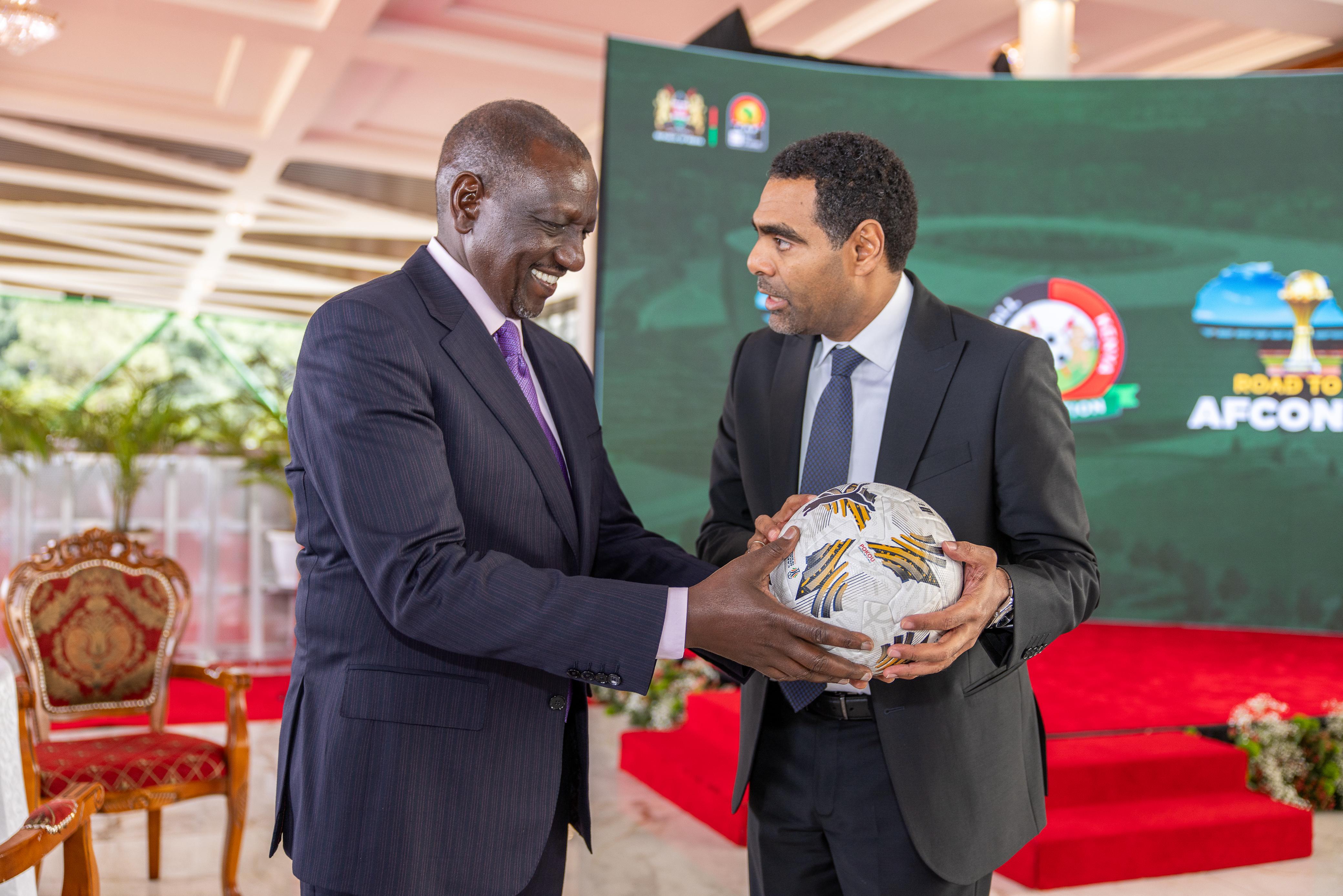

For years, Kenya’s sporting ambitions have been undermined by poor leadership, erratic planning and a lack of private investment. But a turning point may now be in sight.
At a breakfast meeting in State House this week, President William Ruto announced the creation of a technical committee to oversee sponsorships, branding and advertising for Kenyan sports.
The body will draw members from the government, the Football Kenya Federation (FKF) and the private sector. Its mission: to restore trust and build a sustainable partnership that puts athletes first. The symbolism of the meeting mattered. Bringing FKF, corporate leaders and the Ministry of Sports under one roof signals a fresh recognition: no single actor can rebuild Kenyan sports alone.
The President captured this reality with clarity. “We must make it win-win. If it is not win-win, it is not sustainable,” he said. In that phrase lies the heart of the reform effort — a commitment to ensuring athletes, sponsors and fans all benefit. Kenya has struggled before. In 2022, FKF was suspended by FIFA. The Sports Fund, designed to support development, was diverted to other projects. These missteps eroded corporate confidence and denied athletes vital support.
This week’s announcement suggests a break from that past. The Sports Fund is now ringfenced for development. FKF has returned to international competition. The government has deliberately bid for CHAN 2024 and Afcon 2027, not as vanity projects but as platforms to showcase local talent and attract global attention.
The emphasis on grassroots sports is perhaps the most encouraging sign. Kenya has long proven, through its runners, that local academies and community programmes can produce world-class talent. Extending that model to football, rugby, and other sports is the logical next step.
If done well, it could transform countless lives. A boy in Eldoret or a girl in Kisumu would not just dream of global stages; they would have a pathway to reach them.
Corporate partners have been cautious in recent years. Rightly so. Sponsorship requires reliability and transparency. Yet the mood is shifting. A clear framework — with predictable governance and strong oversight — could encourage businesses to return. And when they do, they will bring more than money. They bring branding, professionalism and a sense of accountability.
As the President noted, “resources are not the problem.” What has been missing is trust. Rebuilding that trust will be the committee’s most important task. Kenya does not need to be convinced of its own talent. It only needs to harness it. Across towns and villages, young players lace their boots every weekend. Schools organise tournaments. Fans crowd into small stadiums. The energy is already there. What has been lacking is structure — a bridge from raw passion to professional opportunity. The new committee offers a chance to build that bridge.
Sceptics will argue that Kenya has heard this before. And they are not wrong. But there are reasons to believe this time is different. The Sports Fund is finally protected. FKF, once paralysed, has regained stability. The government has shown deliberate ambition by bidding to host continental tournaments. And the private sector, though cautious, is ready to engage if the rules are clear.
The committee’s formation is not the end of the story. It is the beginning. It will need to prove itself by securing sponsorships, protecting athlete welfare, and ensuring that grassroots programs thrive alongside big events. But for the first time in years, the pieces appear to be falling into place. Government, federation and business are sitting at the same table. Athletes stand to gain from a system that is transparent and predictable.
Kenya has always been a nation of extraordinary talent. What it has lacked is structure and trust. Now, with bold leadership and renewed collaboration, it has an opportunity to change course. This is not just about committees or sponsorships. It is about belief — belief that Kenyan athletes deserve the same opportunities as their peers abroad, and that with the right support, they can compete and win on any stage.











